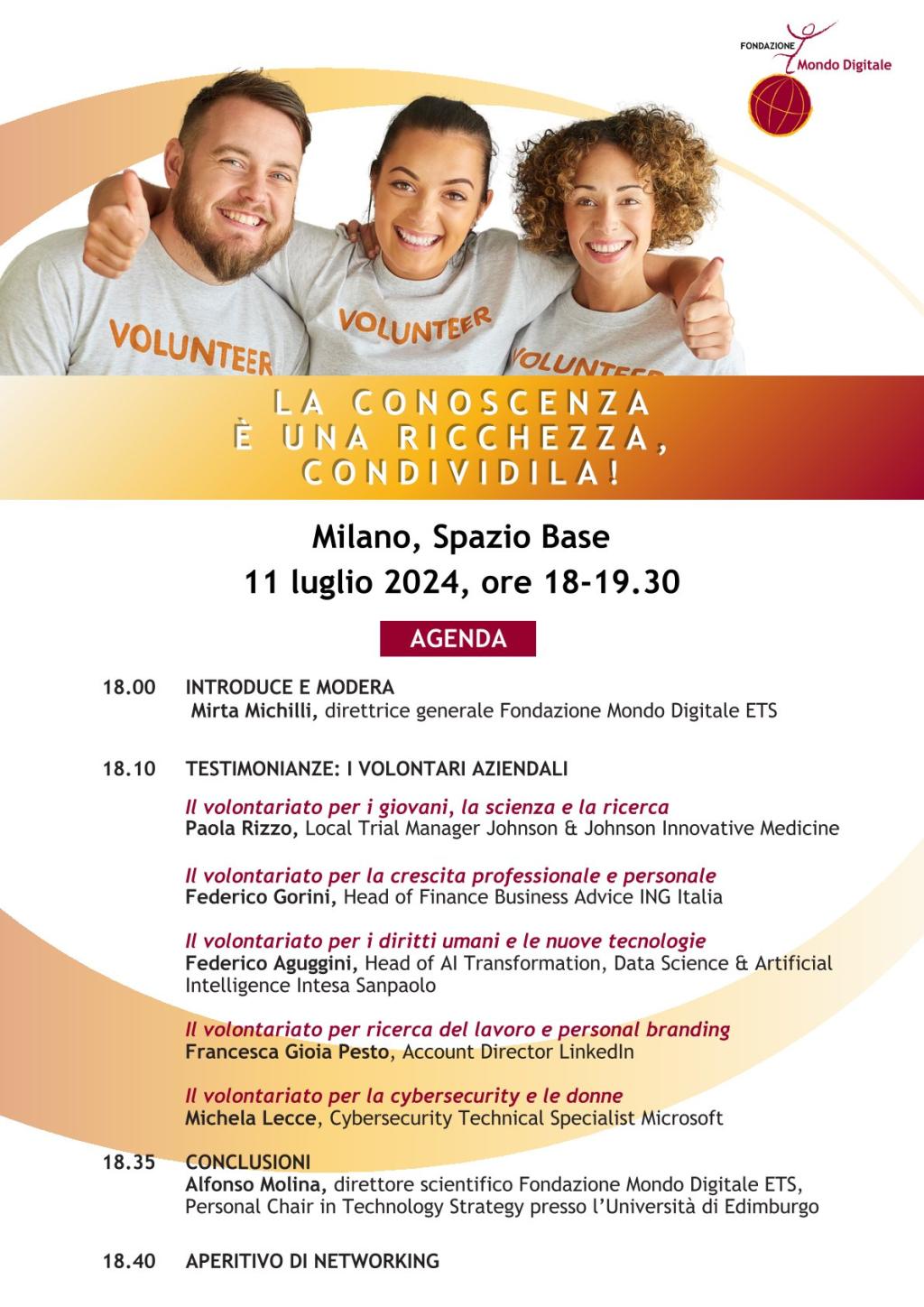The role of individuals in helping communities: an event at Milano Base.
A quarter of Italian companies are interested in engaging their staff in socially useful initiatives. And amongst the most attractive business service formulas is skills volunteering that allows the development of actions and shared value together with third sector organisations.
According to the Recognising Skills Volunteering study, “the potential for growth would probably be even greater if CEOs and human resources managers were informed of the tax incentives they could enjoy if they authorized their employees to carry out meritorious activities during working hours (deduction of 5 per thousand of the cost, pursuant to Article 100, Paragraph 2, Section i of the Consolidated Law on Income Taxes). In fact, more than 6 out of every 10 companies have stated that they did not know about this rule (61%), despite the survey having reached out to important businesses. This says a lot about the need to better explain to personnel managers that it could be advantageous to take advantage of this tool as, under certain conditions, it can improve the company's image and the climate in the workplace, cementing the sense of belonging amongst workers, regardless of the position they occupy on the organizational charts, as demonstrated by various comparative studies on an international scale.”
One of the objectives of the next event at Milano Base (July 11, 6:00 pm) is to present skills volunteering experiences carried out with the Fondazione Mondo Digitale to companies [see news: Skills Volunteering]. This is an informal event, organized as a networking cocktail, to give people the opportunity to talk about themselves in a spontaneous and authentic manner and for businesses to experience a climate of community service. Employee participation in employer volunteer programs has positive results on both an individual and organizational level. Skills volunteering allows employees to connect and increase their self-esteem and personal well-being, even in the workplace. Employees engaged in volunteering activities achieve better results, develop a greater sense of belonging and loyalty to an organization, and have higher levels of job satisfaction. They develop better work-related skills such as communication, interpersonal skills, dedication, creativity, and active listening. In addition to having positive effects on the internal organization, skills volunteering contributes to improving the reputation and public image of a company as a socially responsible organisation.
We hope to work with more and more with companies that, thanks to skills volunteering, know how to harmonize economic and social objectives, with a view to sustainability and care for the community.




